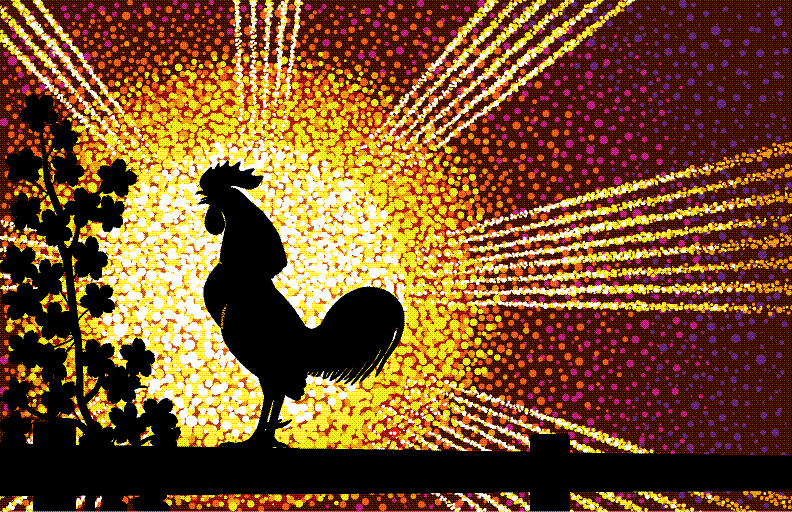
In Puerto Rico, we have a lot of sayings and euphemisms. Many other cultures have sayings - some funny, some with hidden context to soften the blow of otherwise harsh words, bless their hearts.
For a long time, I had friends comment on some things that I’d say since they were direct translations of a Puerto Rican saying. One of my favorites is a cada cerdo le llega su sabado. Every pig has his Saturday. I’ll let you get that on your own. Someone said that I sounded like Balki (from “Perfect Strangers”).
I have a book, Refranes Mas Usados en Puerto Rico, that lists 1,000 sayings from Puerto Rico. Some of them I’ve never heard of and others my family uses regularly. As I write this, I found a new gem, number 666 - Al perro flaco, todo es pulga. For the skinny dog, everything is a flea. It means that when we’re already having a hard time, bad things keep piling on. Some are generic: if you play with fire, you’re going to get burned, and necessity is the mother of invention. But the unique ones are fantastic: There were many of us, and then grandma gave birth.
Besides our sayings, we have many euphemisms. Ese tiene cuernos. He has horns, regarding someone getting cheated on. Many are very similar to the ones here in the states, putting a good face forward, waking up on the wrong side of the bed.
One euphemism that took me a while to understand and perplexed me was le canto el gallo. The rooster sang to her. I was eight and in Puerto Rico for the summer when I heard it for the first time. I stayed at my grandparent’s house with my mom and would spend the days running through the neighborhood with my older cousins. Occasionally, someone would whisper that the rooster sang for a specific female cousin. Once in a while, someone would say that she was too young for the rooster to sing to her. Were they sure?
I was so confused. Why would people make such a big deal about a rooster singing? And why would it sing to someone in particular? Weren’t we surrounded by roosters that sang every morning even before dawn broke? Hadn’t these roosters technically sang for me as well? Why did my aunts laugh hysterically when one of my younger male cousins insisted that the rooster sang for him as well?I asked my mom about the roosters, but she just smiled and didn’t answer my question. She told me I’d know someday.
The mystery of the singing roosters would have to be resolved at some future date. We returned to Brooklyn at the end of the summer. I didn’t return to Puerto Rico until I turned 12 and was there for that fateful trip. By then I was ready to find out what the singing roosters were about.
I’d start junior high school in the fall. Boys were our chief topic of conversation. We primarily talked about Menudo and spent the days listening to Menudo 8 tracks and practicing their dances. Later in the afternoon, we would sit on top of the neighborhood mailbox cluster. They placed the mailboxes in a low concrete shelter with a flat roof. It was under a lamppost and in front of one of my aunt’s houses. It was the perfect spot. We’d sit there after dinner until dark. We annoyed the adults in the neighborhood with our loud conversations and belting out popular songs.
At some point early in my vacation, one of my female cousins from our small Menudo listening-mailbox hanging-out group asked me if the rooster had sung for me. I didn’t know what she meant. She told me. I must have been red with embarrassment. No, he hadn’t.
She asked me if I had gotten my period.
Why was it asked in such a silly way? None of my friends in Brooklyn used such a strange way to refer to periods. Good old Catholic embarrassment over body functions. So let’s make it about a singing rooster instead, because that makes so much more sense. It added more to the feeling that we should be ashamed and that we don’t talk about periods in public. It’s just how women going through menopause would refer to it as “the change”.
Finally, I knew. I felt silly. Eleven is such an oddball age. We know about certain grown-up things but are oblivious to others. We’re still kids but feel pressured to leave kid things behind. Once the rooster sang for you, they expected you to not do any of those fun kid things. I’d heard my aunts gossip about how so-and-so was still playing with Barbies, even though the rooster sang for her. I still liked my Barbies, though not as much as before. It seemed like a burden that I didn’t want to take on. I still wanted to play and hang out singing Menudo songs and dances.
The rooster could go sing for someone else.
